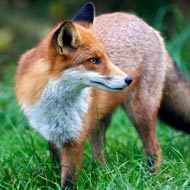Committee seeks evidence on welfare of hunted foxes

A call for evidence about the welfare of hunted foxes has been issued by the Wild Animal Welfare Committee.
A call for evidence about the welfare of hunted foxes has been issued by the Wild Animal Welfare Committee (WAWC).
Earlier this year, the organisation said that it would put together a statement in response to public interest in changes to legislation governing the hunting of wild mammals with dogs in England, Wales and Scotland.
The call for evidence specifically seeks references to published research about the effects of being flushed by two dogs or a full pack. It also aims to see whether there is any animal welfare-based case to change the law in any of the UK administrations.
“The WAWC is not aware of any new specific evidence on the welfare aspects of hunting foxes with dogs, since the report of the Burns Inquiry in June 2000, which concluded that hunting with dogs ‘seriously compromises the welfare’ of foxes, deer, hares and mink," commented WAWC chair Dr Pete Goddard.
He continued: "There is not thought to be any new reliable evidence either on the effectiveness of hunting with dogs, especially different numbers of dogs, in controlling fox populations.
“We see it as an important part of our remit to ensure that animal welfare is fully discussed, rather than any justification for, or effectiveness of, hunting with dogs. "
The statement will assist the policy process by making sure that all relevant research is summarised and made known to decision makers. Researchers, academic and other observers are all invited to send information to the WAWC for collation.
The call for evidence remains open until January 2106 and is available at http://www.wawcommittee.org/get-involved.



 The Veterinary Medicines Directorate (VMD) is inviting applications from veterinary students to attend a one-week extramural studies (EMS) placement in July 2026.
The Veterinary Medicines Directorate (VMD) is inviting applications from veterinary students to attend a one-week extramural studies (EMS) placement in July 2026.